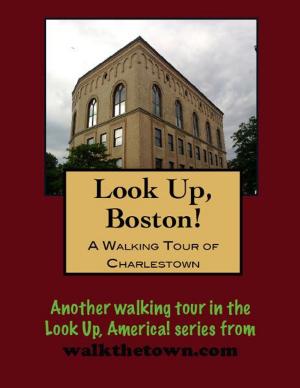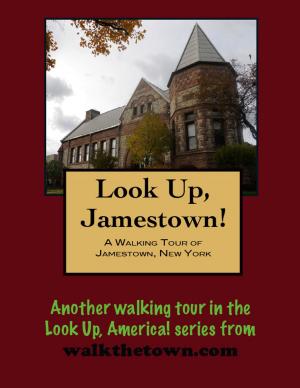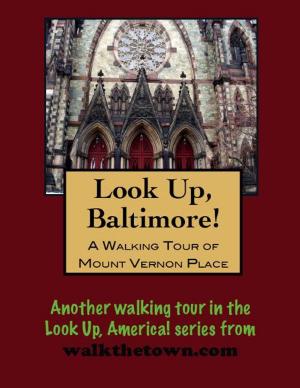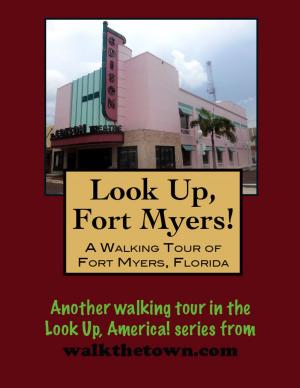| Author: | Doug Gelbert | ISBN: | 9781458048318 |
| Publisher: | Doug Gelbert | Publication: | June 9, 2011 |
| Imprint: | Smashwords Edition | Language: | English |
| Author: | Doug Gelbert |
| ISBN: | 9781458048318 |
| Publisher: | Doug Gelbert |
| Publication: | June 9, 2011 |
| Imprint: | Smashwords Edition |
| Language: | English |
There is no better way to see America than on foot. And there is no better way to appreciate what you are looking at than with a walking tour. Whether you are preparing for a road trip or just out to look at your own town in a new way, a downloadable walking tour is ready to explore when you are.
Each walking tour describes historical and architectural landmarks and provides pictures to help out when those pesky street addresses are missing. Every tour also includes a quick primer on identifying architectural styles seen on American streets.
For much of the 1700s Edenton stood in the first rank of towns, not just in North Carolina but in America as well. The town site was one of the first in the colony and in 1722 the village was incorporated and named for Royal Governor Charles Eden. For the next twenty years the royal governor lived here, establishing Edenton as the colonial capital.
Edenton flourished with artisans setting up shop on its streets while goos from across the British empire crossed its docks. While two busy shipyards were turning out considerable ships the town was giving America - and its growing desire for independence - citizens of importance. In 1774, fifty-one women in Edenton signed a protest petition agreeing to boycott English tea and other products. The Edenton Tea Party was the first political action by women in the American colonies and its impact indeed resonated in London.
Other prominent Edentonians included Joseph Hewes, a merchant prince and one of the wealthiest men in the colonies, whose contribution to the cause for independence led to his reputation as the "Father of the American Navy." James Iredell, an Edenton native, was the youngest member appointed to the first United States Supreme Court by George Washington. A fellow justice, James Wilson, a signer of both the Declaration of Independence and the United States Constitution, was a regular visitor to Edenton and died here in 1798. Samuel Johnston was a local planter and the first United States Senator from North Carolina.
Ultimately, Edenton's prominence faded rapidly. A hurricane silted the Roanoke Inlet in 1795 and closed the port's easy access to the sea. When the new-fangled railroad came on the scene a few decades later townsfolk wanted no part of it. The world literally and figuratively passed Edenton by. There would eventually be a cotton mill and the state's busiest peanut plant but for the most part the tiny town on a peninsula formed by Pembroke and Queen Anne's creeks went about its business in anonymity.
With the recent emergence of heritage tourism, Edenton's rich 18th century history suddenly became fashionable. The entire town has been declared an historic district and our hunt for landmarks will begin with a buffeting by the breezes from the Edenton Bay...
There is no better way to see America than on foot. And there is no better way to appreciate what you are looking at than with a walking tour. Whether you are preparing for a road trip or just out to look at your own town in a new way, a downloadable walking tour is ready to explore when you are.
Each walking tour describes historical and architectural landmarks and provides pictures to help out when those pesky street addresses are missing. Every tour also includes a quick primer on identifying architectural styles seen on American streets.
For much of the 1700s Edenton stood in the first rank of towns, not just in North Carolina but in America as well. The town site was one of the first in the colony and in 1722 the village was incorporated and named for Royal Governor Charles Eden. For the next twenty years the royal governor lived here, establishing Edenton as the colonial capital.
Edenton flourished with artisans setting up shop on its streets while goos from across the British empire crossed its docks. While two busy shipyards were turning out considerable ships the town was giving America - and its growing desire for independence - citizens of importance. In 1774, fifty-one women in Edenton signed a protest petition agreeing to boycott English tea and other products. The Edenton Tea Party was the first political action by women in the American colonies and its impact indeed resonated in London.
Other prominent Edentonians included Joseph Hewes, a merchant prince and one of the wealthiest men in the colonies, whose contribution to the cause for independence led to his reputation as the "Father of the American Navy." James Iredell, an Edenton native, was the youngest member appointed to the first United States Supreme Court by George Washington. A fellow justice, James Wilson, a signer of both the Declaration of Independence and the United States Constitution, was a regular visitor to Edenton and died here in 1798. Samuel Johnston was a local planter and the first United States Senator from North Carolina.
Ultimately, Edenton's prominence faded rapidly. A hurricane silted the Roanoke Inlet in 1795 and closed the port's easy access to the sea. When the new-fangled railroad came on the scene a few decades later townsfolk wanted no part of it. The world literally and figuratively passed Edenton by. There would eventually be a cotton mill and the state's busiest peanut plant but for the most part the tiny town on a peninsula formed by Pembroke and Queen Anne's creeks went about its business in anonymity.
With the recent emergence of heritage tourism, Edenton's rich 18th century history suddenly became fashionable. The entire town has been declared an historic district and our hunt for landmarks will begin with a buffeting by the breezes from the Edenton Bay...















